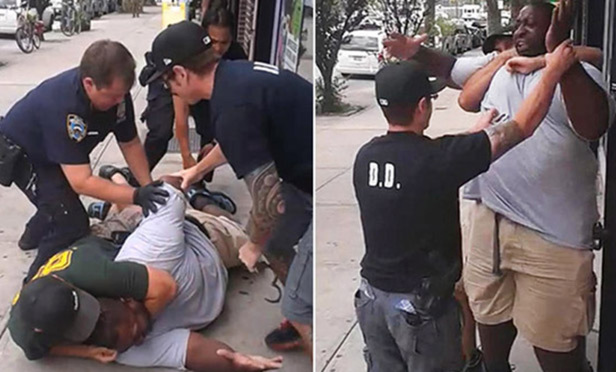Michael Shapiro

March 25, 2021 | New York Law Journal
New York's Martin Act: Preemption Is Past DueThe time has come, in fact the time is long past due, for the New York Court of Appeals, and if necessary the U.S. Supreme Court, to address the preemption issue and finally resolve it.
By Robert A. McTamaney and Michael Shapiro
9 minute read

February 07, 2017 | Texas Lawyer
Lost Profit Versus Lost Business ValueA business has a value equal to the expected future economic benefits to its owner, discounted to a present value. This concept has broad acceptance and appears in multiple economic, finance and valuation texts.
By Jeff Compton, Margaret Bryant and Michael Shapiro
13 minute read

December 05, 2014 | New York Law Journal
Brown, Garner Cases Should Have Had Special ProsecutorsIn 1971 the blue-ribbon Knapp Commission recognized the inherent conflict of interest in a local district attorney investigating and prosecuting police-committed crimes. Perhaps it is time for the reestablishment of the special prosecutor's office.
By Michael Shapiro
2 minute read

November 04, 2008 | Corporate Counsel
Tyco: When Does a Corporate Probe Become State Action?On Oct. 16, the New York Court of Appeals affirmed the convictions of former Tyco executives Dennis Kozlowski and Mark Swartz, who may now theoretically challenge their convictions in federal court by seeking habeas review. Regardless of the fate of these two individuals, the opinion may have created more issues than it resolved. Its construction of a civil procedure discovery statute in the context of a criminal prosecution may well have opened up a Sixth Amendment Pandora's box.
By Alan Lewis and Michael Shapiro
15 minute read

November 03, 2008 | New York Law Journal
Tyco: When Does a Corporate Probe Become State Action?Alan Lewis and Michael Shapiro, partners at Carter Ledyard & Milburn, conclude that in the wake of the Court of Appeals' ruling in People v. Kozlowski: (1) by interpreting CPLR §3101(d)(2)'s substantial equivalence test to require that a party seek to obtain substantially equivalent evidence even before the time it becomes a party in a case; and (2) by defining two adversaries' separate interviews of the same witness as the "substantial equivalent" of one another, the Court has crafted additional requirements for a party seeking to enforce a third-party subpoena not imposed by the legislature and which, when applied in a criminal case, may very well violate the Sixth Amendment right to compulsory process.
By Alan Lewis and Michael Shapiro
16 minute read
Trending Stories



